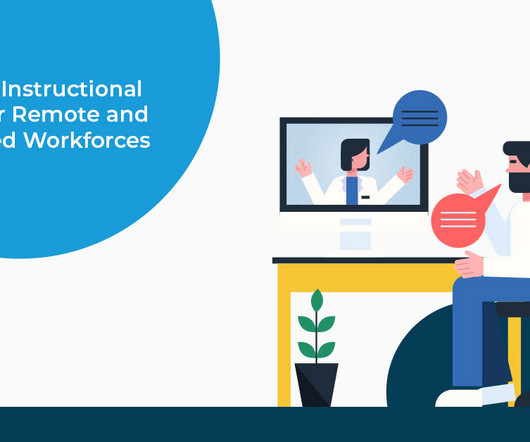Evolving Minds: The Psychology Behind Effective eLearning
HexaLearn
JANUARY 17, 2024
Welcome to the captivating world of eLearning psychology, shaping online learning solutions for the digital age. Evolving Minds In this article, we’re about to embark on a journey to unveil the fascinating ways psychology shapes Learning Management Systems (LMSs) and custom eLearning development for effectiveness and enjoyment.




































Let's personalize your content